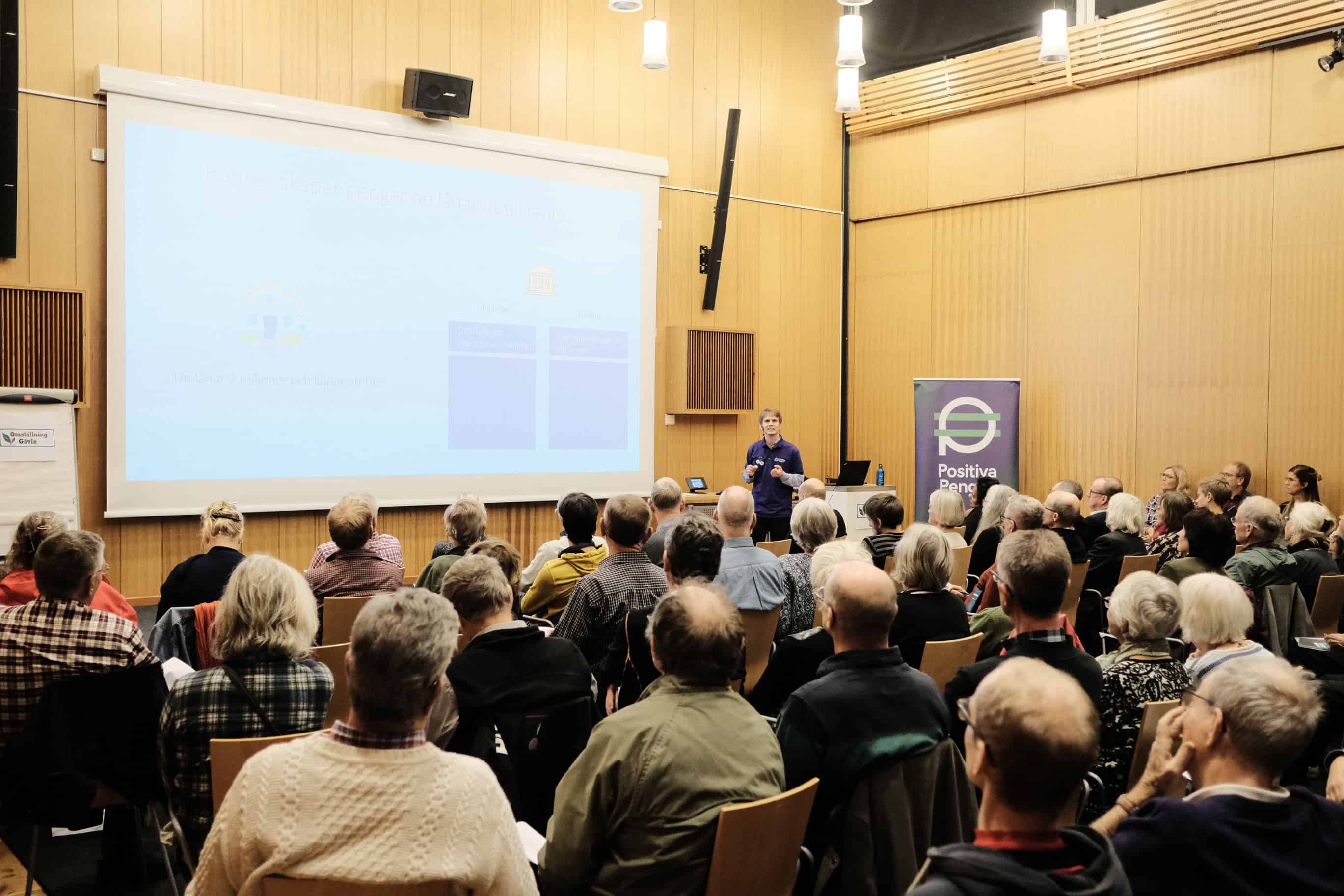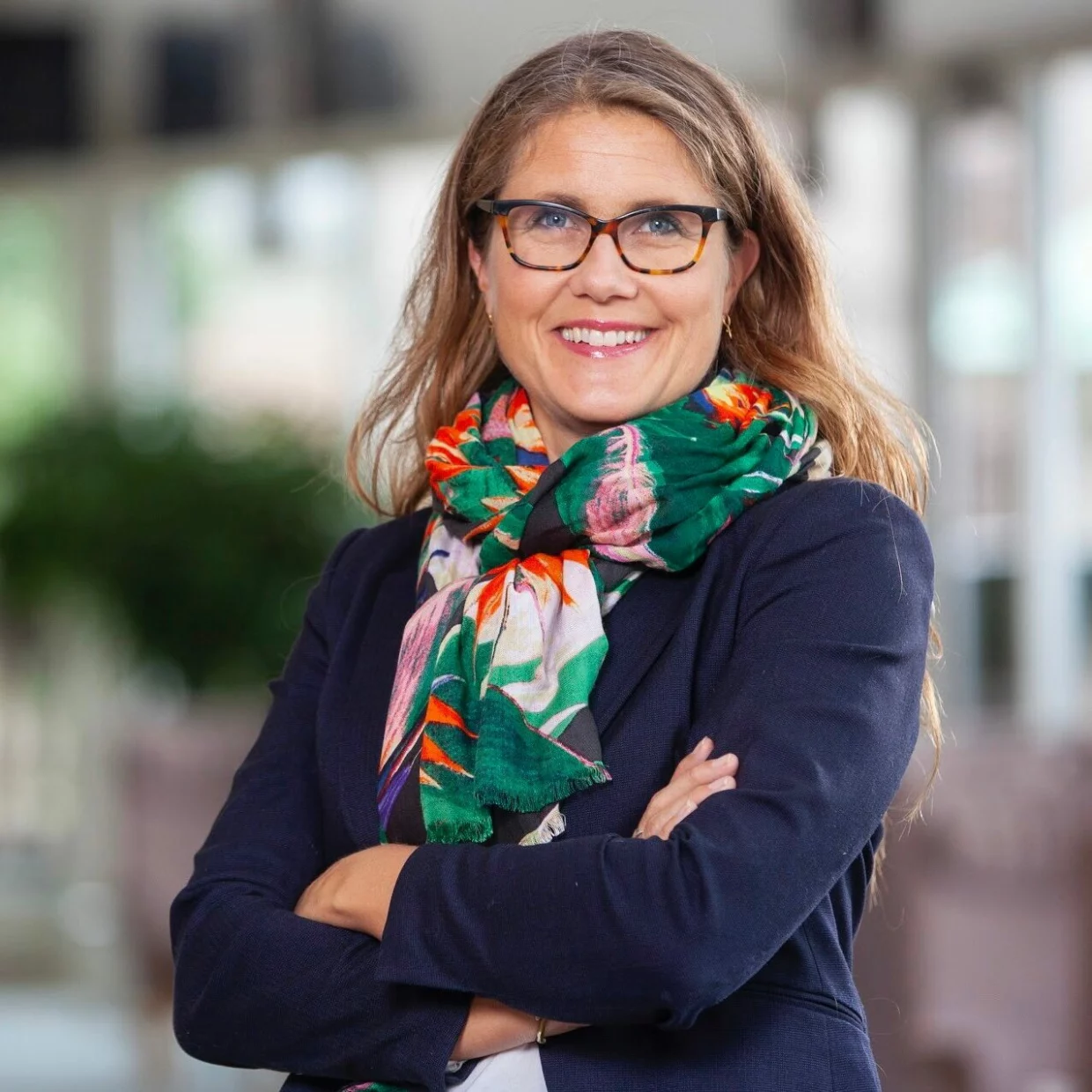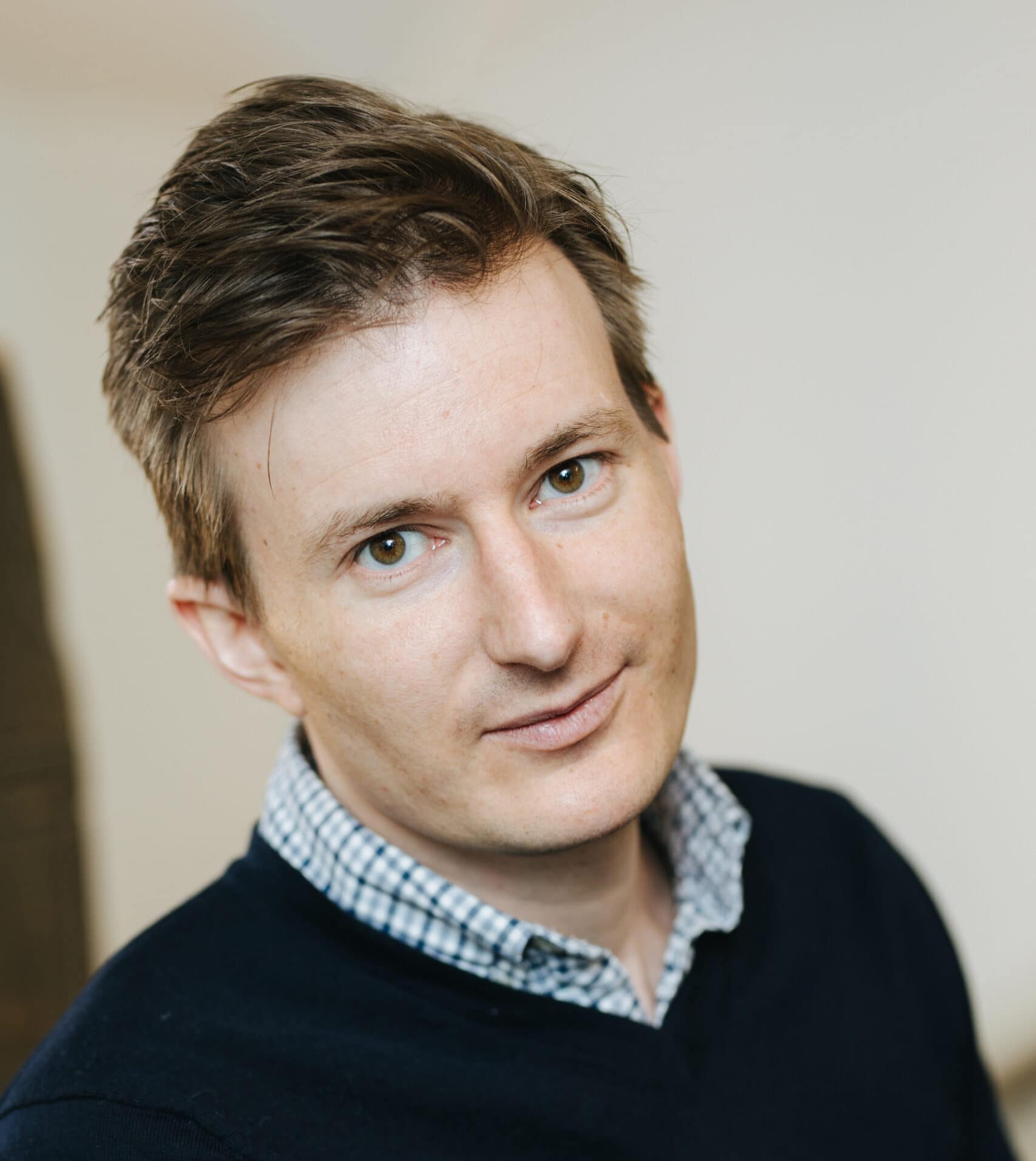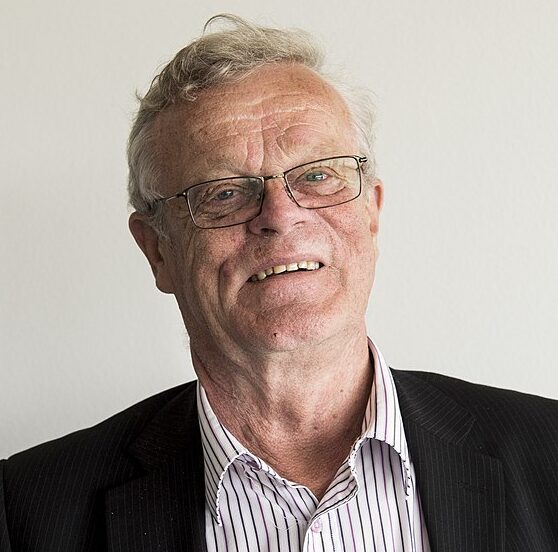Banks creating money
A serious climate threat?
Today, money creation is largely outsourced to private banks. According to professor Peter Dietsch, this has devastating consequences for the climate. New money is automatically poured into whatever private banks deem profitable, including fossil fuel industries and the over-exploiting of natural resources. This blocks the green transition. Can money creation be reformed to stop feeding fossil fuel industries?
To answer this, we organized a webinar with Professor Dietsch on 19 September 2023, as well as a panel of experts and parliamentary politicians. We launched the webinar with a debate article in Aftonbladet. It was a very successful event with over 300 participants, an extremely interesting lecture and panel discussion and lots of happy emails, phone calls and thanks afterwards. Register to watch the webinar now or read more below:
*By clicking the button, you agree that Positiva Pengar will email you the video-link to participate and more information about this and coming webinars. You can stop receiving our emails whenever you want by clicking unsubscribe in our email.
A hidden obstacle for the green transition
Among decision makers, climate activists and journalists, it is widely unacknowledged that states all over the world provide an almost endless stream of money for fossil fuel investments. This is a serious obstacle for a green transition. Here is how it works:
The state has delegated money creation to private banks. [1] This means that the banks are authorised to decide who should get access to newly created money. Money is not a scarce resource, money can be created by banks in endless quantities. The only thing that effectively restricts how much money banks create is whether certain investments are deemed to be profitable or not. [2]
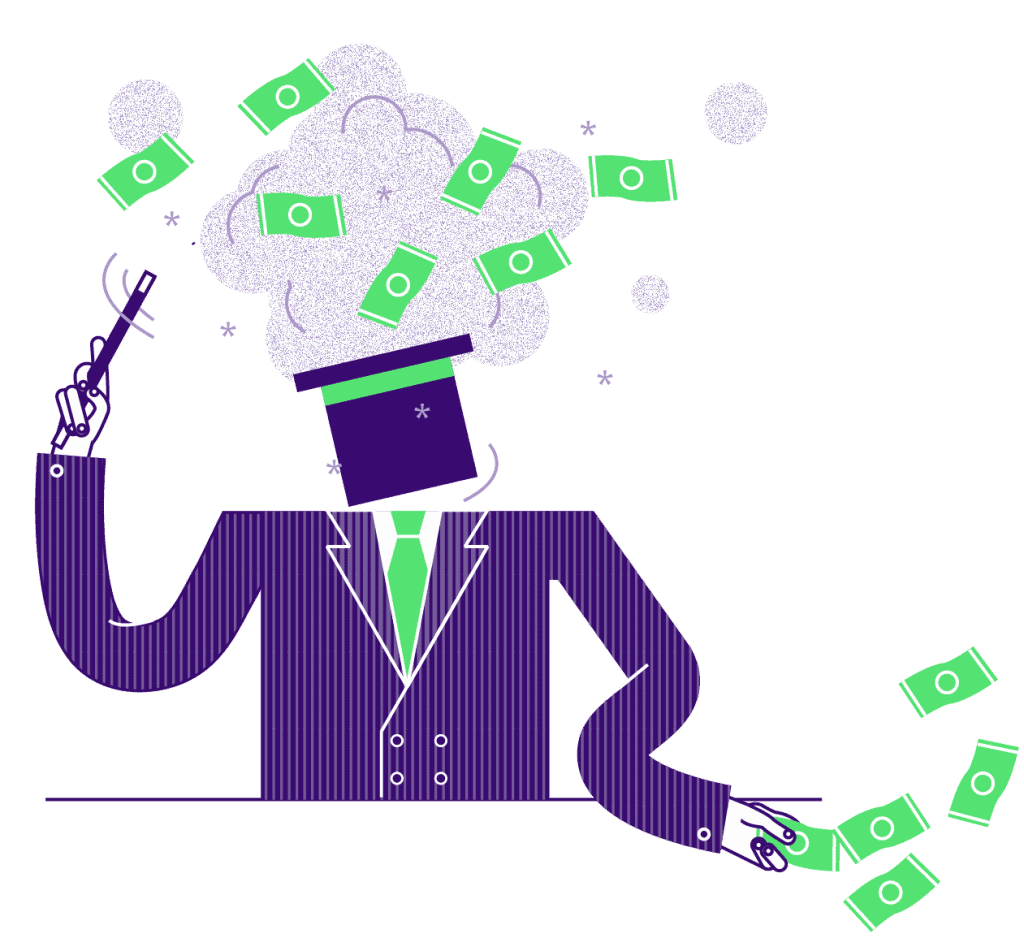
Fossil fuel production is still very profitable and will remain so for the foreseeable future. This means that there are no effective restrictions on how much money the banks can create for fossil fuel investments. As a result, the world's 60 largest banks have created between $2.8 and $5.5 trillion for fossil fuel production since the Paris Agreement! [3]
As long as we, the public, continue to accept a political order where money creation is unconditionally outsourced to private companies, we can never solve the climate crisis.
Who is creating money?
Many of us learned in school that the state ultimately control money creation. However, what many don't realise is that the state has delegated this power to private banks.
To understand how this delegation works, let's compare it with the case where a local shop signs an agreement with Starbucks (the franchisor) to be authorised to sell Starbucks coffee (to become a franchisee). The Starbucks company then transfers the right to produce and sell coffee with the label 'Starbucks' on it, in any amount, and sell it to whomever they want as soon as there is market demand for coffee.

To delegate money creation to a local bank can be compared to when Starbucks delegate creation of a Starbucks coffee to a local coffee shop.
In the same way, local private banks have signed contracts with the central bank to be authorised to create and lend public dollars, euros, etc. The banks produce new official money and lend it to customers as soon as there is demand for a loan by creditworthy borrowers that the banks believe are capable of repaying in the future.
In other words, a private bank doesn't need to borrow money from savers to be able to give a loan. The bank simply creates the money out of thin air on behalf of the central bank. To read more about how this process works in detail, please see the footnote. [4]
Why is this bad for the climate?
The monetary system is ultimately a way to organise a society. The power over money creation is the power to decide who should work on what, which determines in which direction the whole society will develop. Sectors that get access to new money can invest, grow and flourish. Sectors that don't get access to new money will die.
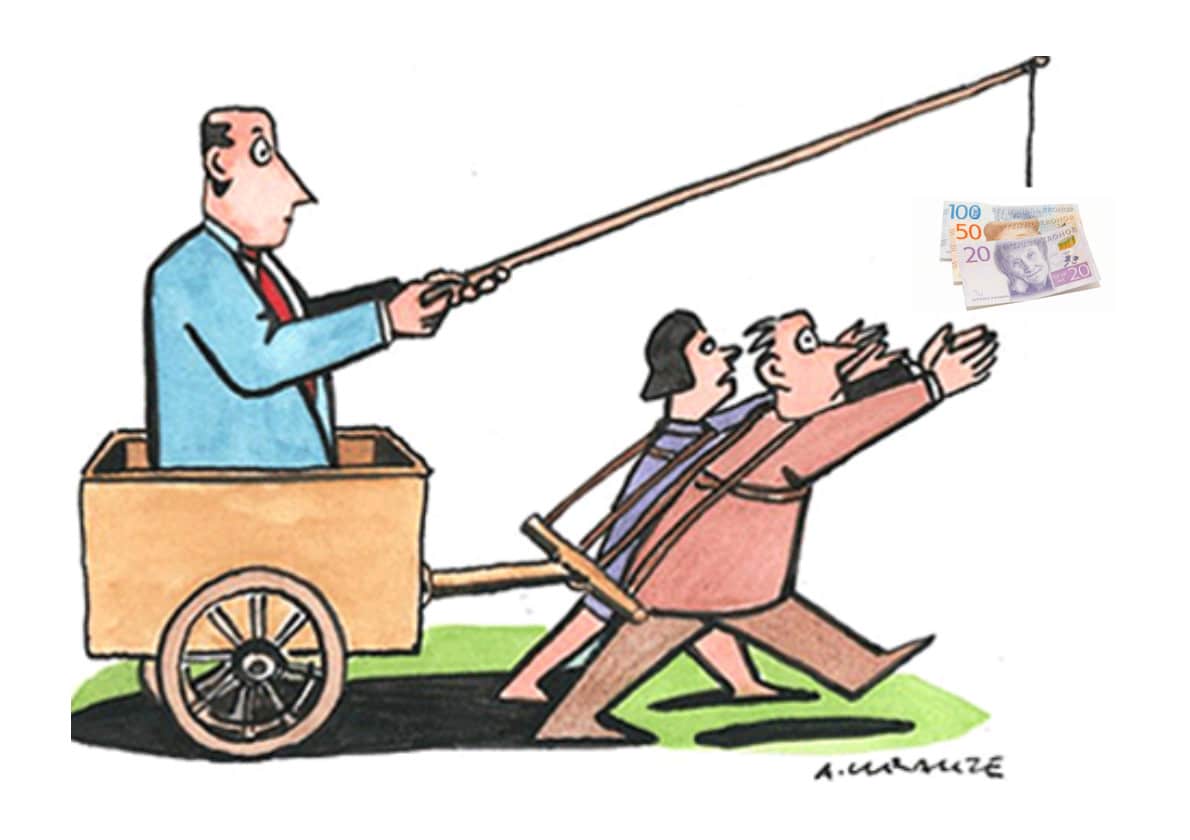
The power over money creation gives extensive power over the economy
Who benefits and who loses from the creation of today's money? Which are the projects that the banks have chosen to water, grow and make thrive, and which projects are they letting die?
The answer is: the banks will finance any project they deem profitable. Today, it is still very profitable to invest in high-carbon companies that overexploit our natural resources and destroy ecosystems. That's why the world's banks created up to $673 billion for brown investments in 2022 alone! [5]
This means that current attempts to solve the climate crisis are undermined. No matter how hard we work, we will never succeed in achieving a green transition by shifting existing money to green sectors as long as banks, supported by their central banks, can create an unlimited flow of new money for profitable fossil fuel industries.
Who should we blame?
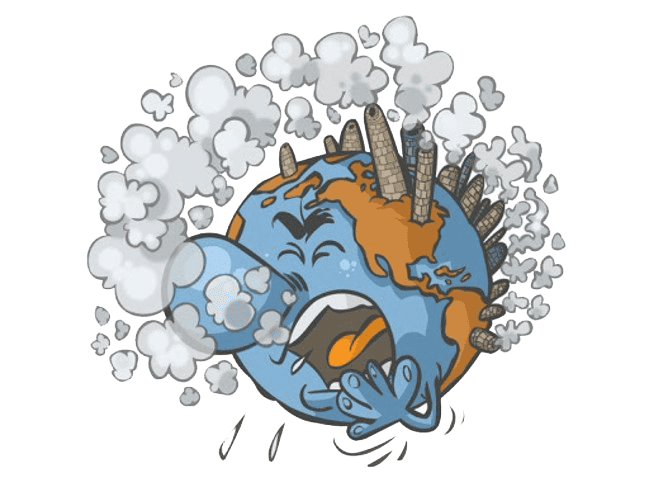
As Professor Peter Dietsch writes in his work, "We, the public, and our political representatives, are all accountable for this state of affairs. In short, it is not that private investments in fossil fuels continue despite our best efforts; it's that public policy choices actively enable and incentivise this investment to continue."
In other words, we, the public, have elected political representatives who have delegated money creation to private banks, and thus, bear responsibility. Without active support from the state, private banks wouldn't have been able to create a single official dollar, euro, or krona for fossil fuel investments.
This situation is quite absurd: One branch of the state attempts to solve the climate crisis, while simultaneously, another branch conducts a monetary policy that actively undermines all efforts to facilitate a green transition by pouring money into fossil fuel investments. As Professor Dietsch formulates it, "The left hand is undermining the already insufficient actions of the right hand." His hope is that 'confronting decision-makers with these inconsistencies will increase public pressure on them' to implement the necessary reforms.
How to create a sustainable economy
Carbon taxes
A first possibility is to impose taxes and costs on all activities that are harmful to ecosystems and the climate (in economic language, to internalise negative externalities). However, this path has proven to be challenging. According to the IPCC, only 20% of global greenhouse gas emissions were covered by carbon taxes, and the price on emissions is far too low. [6] Designing rules and taxes that make all socially beneficial activities profitable while rendering harmful ones unprofitable is not an easy task. The market is adept at discovering new loopholes. As long as carbon taxes are insufficiently high and easy to circumvent, private banks will continue to create money for fossil fuel projects.
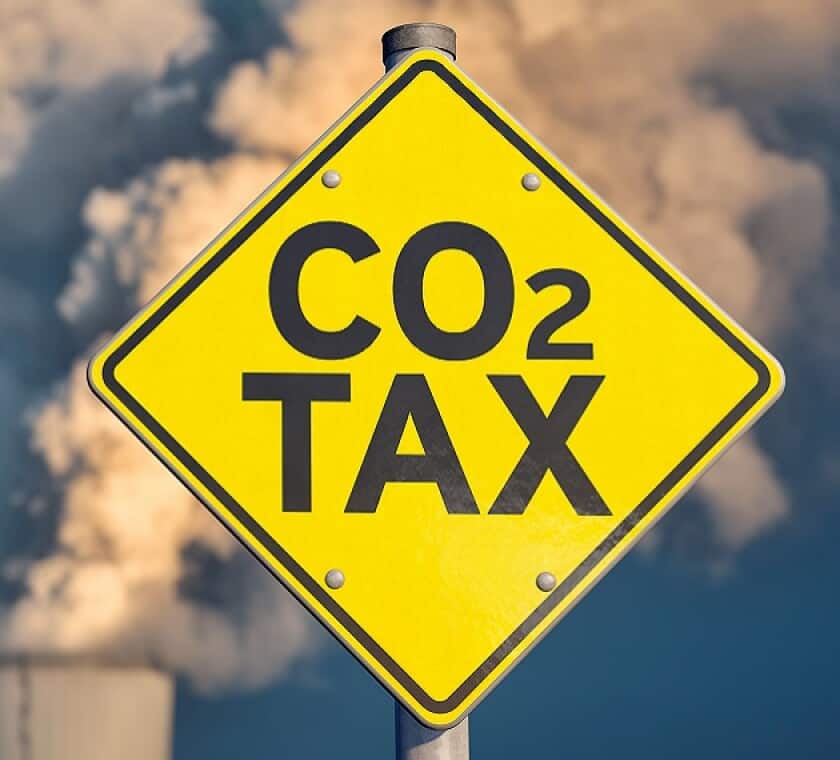
Throttling money creation for fossil fuel investements
A second possibility, as discussed by Professor Peter Dietsch in his work, is to reform money creation. Instead of unconditionally allowing banks to create official money for whatever purpose they deem profitable, the state can impose requirements. If banks want to finance brown industries, they should not be allowed to create a country's official money for this purpose, they should have to stand on their own feet and finance themselves by borrowing the money on the market. This would dramatically reduce the amount of financing available for the fossil fuel industry. For anyone concerned about the climate, to reform money creation should be at the top of their agenda.

Professor Peter Dietsch

Peter Dietsch is professor in the Department of Philosophy at the University of Victoria. His research focuses on issues of economic ethics, notably on tax justice, normative dimensions of monetary policy, and on income inequalities.
In addition to numerous articles in academic journals as well as public media, Dietsch is the author of Catching Capital – The Ethics of Tax Competition (Oxford University Press, 2015), co-author of Do Central Banks Serve the People? (Polity Press, 2018), and co-editor of Global Tax Governance – What is Wrong with It and How to Fix It (ECPR Press, 2016). Read more about Peter Here.
The panelists
The seminar ended with a panel discussion. We invited experts and politicians to discuss, in the light of Peter's presentation, how we can solve the current environmental and climate crisis.
Historic opportunity
Central bankers, academics and politicians all around the world are right now discussing the problems and risks of the current monetary system. We now have a historic opportunity to influence and ensure that money creation is organised in a fair and sustainable way. Therefore, we are organising courses and webinars on the topic. Sign up and feel free to invite friends and acquaintances.
❝
Never doubt that a small group of thoughtful, committed, citizens can change the world. Indeed, it is the only thing that ever has.
Margaret Mead
